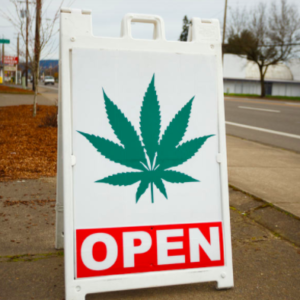In a recent column, the National Organization for the Reform of Marijuana Laws claimed that the designation of marijuana businesses as “essential” proves that lawmakers have embraced the marijuana industry and has “solidified its status as part of the mainstream fabric of America.”
What the folks over at NORML left out was that while a handful of governors have indeed chosen to deem marijuana stores “essential,” others had to be strong-armed into doing so.
In March, Colorado Gov. Jared Polis announced marijuana stores would either be closed or would have to switch to curbside or drive-thru operations. The industry sprang into action, and less than a week later the governor completely changed course.
Now, recreational pot shops are among some of the only businesses in the state allowing full indoor sales.
It took less than a week for other officials in Colorado to cave. After Polis reversed his decision, Denver Mayor Michael Hancock ordered recreational stores to be closed until April 10 as part of a stay-at-home order.
Literally hours after this announcement, Hancock flip-flopped and stated that marijuana stores and liquor stores would be allowed to remain open.
Why the sudden change of course? In a recent expose, the Denver Post offers one explanation: the influence of the pot lobby.
According to the article, as soon as Hancock’s order was handed down, industry groups in the state began hitting the phones. It is worth noting that Colorado media have recently pointed out that the marijuana industry has been one of the biggest spenders in trying to influence state politics.
Big Pot’s political spending in the Centennial State has more than tripled since 2013. In 2018, it spent more than $955,000. And in 2019, it had spent upward of $1.4 million on lobbying.
And at the federal level, Big Pot’s spending has almost tripled in the last year alone with $11 million in lobbying expenses. Speaking of the federal level, the marijuana industry had few more ardent defenders on Capitol Hill than Polis when he was a member of Congress. At every opportunity, he voted in lock step with the pot profiteers and earned an A+ rating from NORML.
Additionally, in his gubernatorial run, he used his record and immovable support for the marijuana industry as a key part of his campaign plank to paint a contrast between himself and the previous incumbent, Gov. John Hickenlooper, who initially opposed legalization and vetoed many industry priorities. If Polis has had to be strong-armed into opening marijuana businesses, this alone negates NORML’s claims.
To be clear, the marijuana industry has never been one to miss using a crisis to its advantage. Last summer, Big Marijuana spun the pot vaping crisis — wherein several thousand people fell ill and at least 60 lost their lives due to THC vapes — into a call for full federal legalization.
Of note: many cases of lung illness and several deaths were tied to the use of products purchased at “regulated” dispensaries.
Now, the industry is using the fact that its stores have been labeled as “essential” as a call for legalization nationwide. Never mind the fact that Colorado officials had to be beaten into submission, and that they are having to bring lawsuits against Massachusetts Gov. Charlie Baker for closing stores.
And at the federal level, Big Pot is hoping that $11 million spent securing well-heeled lobbyists will result in all kinds of taxpayer-funded carve-outs from Congress in the next round of COVID-19 aid.
So now, buying a cappuccino at Starbucks is not allowed, but walking into “Starbuds” — an actual marijuana store — for a bag of today’s high potency weed is perfectly fine.
It isn’t because marijuana has been “solidified into the mainstream fabric of America”— it’s because its army of lobbyists are flexing their political muscle and threatening politicians to do as they demand.

